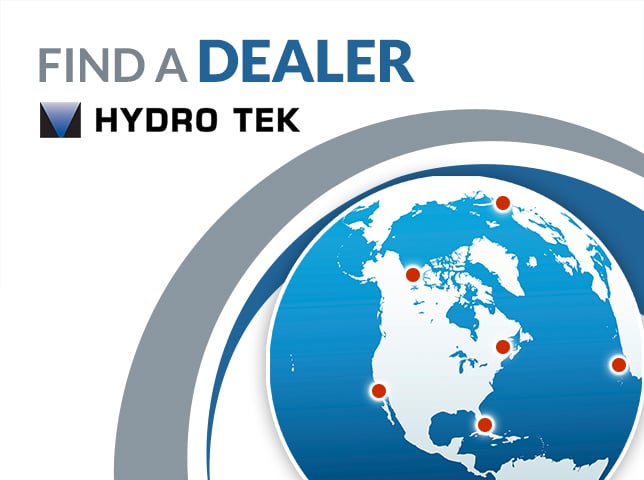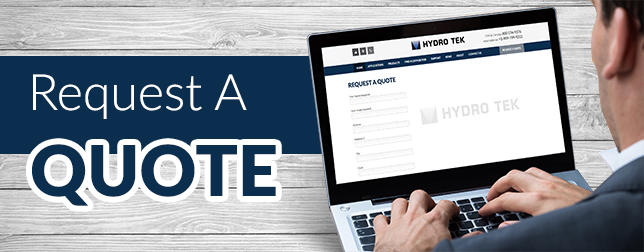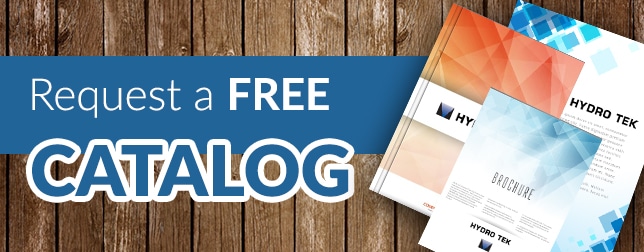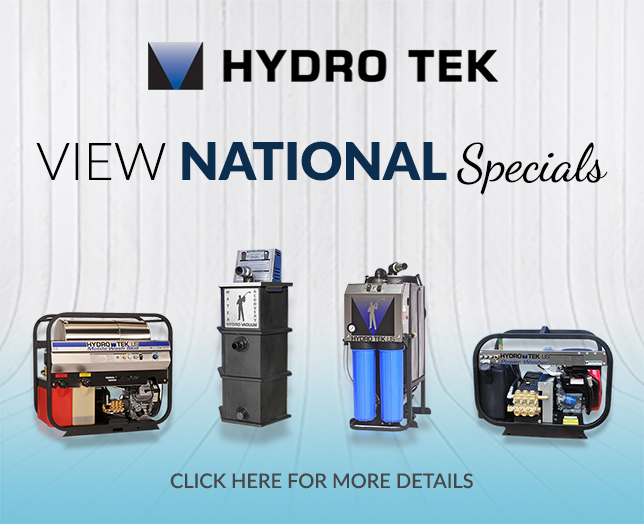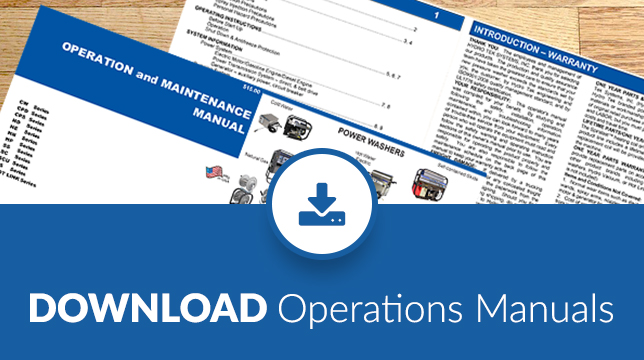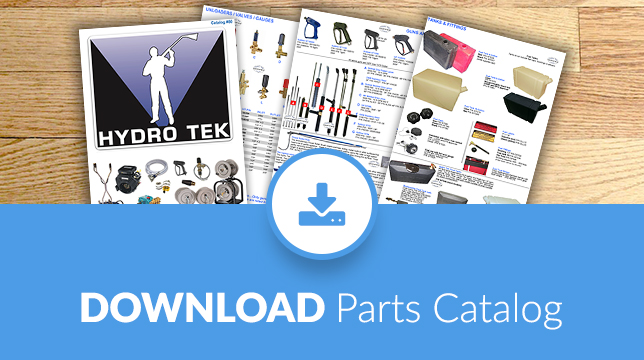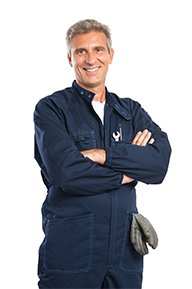Please read Matching the Equipment to the Expectation, this article will help to give you a better idea about how to match your expectations to the proper machines.
You can also read our Pressure Washer Buyer's Guide for additional information.
Not sure what you can do with a pressure washer? Check out this list of just a few of the many uses for a power washer, 100+ Uses for a Pressure Washer or look at some of our Real World Applications
Here are some questions and answers to help you decide what type of pressure washer you need.
Do you want to use it around home or is it for commercial / industrial use?
Home use:
If you will only use this pressure washer under 100 hours per year (a couple of hours a week) you may need to only invest in a less expensive pressure washer. This is usually a cold water unit that can be a small gas (2,000 psi, or 5.5 HP or less) or small electric (1,000 psi - 1,500 psi, 15 amps, 110v.).
These pressure washers sometimes have aluminum pump heads and plastic valves and run at higher RPM because they are direct drive. These less expensive components means a less expensive price. (Commercial grade units have brass pump heads and stainless steel valves). These types of pressure washers are typically available through mass merchants, discount hardware stores and mail order. Hydro Tek Systems does not make a pressure washer specifically for the home market, however, some of our units are designed for the cost conscious buyers that need high performance with fewer "bells and whistles".
Commercial / Industrial use:
If you plan to use this pressure washer for 100 hours to 2,000 hours per year you need an industrial grade pressure washer, either cold or hot water. Industrial pressure washers have brass pump heads. Heavy Duty industrial gas powered machines will use either gear drive or belt drive -- with direct drive as a less expensive, less durable option. The electric pressure washers should either be direct drive with 1750-1800 RPM motors or belt drive if using a 3,500 RPM motor. It is important to select a unit with top quality components throughout, and not just focus on the power plant. Most pressure washer problems are caused by the unloader valve that controls the pressure, yet many people never consider this in their buying decision. If you are going to use a machine 40 hours or more per week look for low RPM, belt driven pumps that are designed for continuous use (much like the pumps at the local car wash) For mobile applications a 110 volt burner powered by a unit equipped with an integrated generator will typically outlast a 12 volt burner system. A diesel engine powered system will outlast the typical Industrial / Commercial gasoline powered system. Stay away from engines that do not have a cast iron cylinder sleeve. For stationary systems, a natural gas or propane fired burner system will require much less maintenance than an oil fired burner.
Do I need hot water or cold?
Cold water:
Cold water pressure washers can be used to successfully clean many objects and surfaces through a combination of impact of the spray and the application of cleaning chemicals and soaps. Cold water is generally used where grease and oil are not a factor, but with the right chemicals grease and oil can still be effectively dealt with. Consult a Hydro Tek dealer near you for the best advice in the application of cleaning chemicals.Hot water:
We know from washing dishes that hot water makes cleaning easier, especially if we are cleaning grease, oil, or petrochemicals. Cold water can be effective if the proper cleaning chemicals are also used. Hot water can often make cleaning faster by loosening dirt, gum, grease and oil. Most hot water units use diesel or kerosene to heat the pressurized water in a heavy duty heating coil. The heating coil and burner system makes the hot water unit heavier, more complex and increases the amount of maintenance needed. To run the burner system the unit requires electricity. So unless the unit uses a self-contained power source such as a battery or generator (Like our SC and SS pressure washers), you have to plug the hot water unit in (Like our HG, HD and HN series).
How much pressure and flow do I need?
Around the house:
To clean around your house, wash your siding, wash your car (Most Coin-Op car washes have about 700psi), or clean your deck you probably only need 1,500 to 2,000 PSI For concrete cleaning or to clean barnacles off boat hulls you would be better off with 3,000 PSICommercial / Industrial use:
As a commercial contractor you need at least 3,000 PSI in order to be fully productive. Flow is important for rinsing horizontal surfaces or powering surface cleaning machines, such as our Hydro Twister®. If you are cleaning vertical surfaces, or excess water is a problem, a low flow/high-psi unit is possibly the better option.For a given amount of horsepower you can only get so much pressure and flow. Pressure is good for cleaning, but to rinse you need flow to push the dirt across the horizontal surface. If what you are cleaning comes off easily, but you need to push a lot of dirt -- cleaning animal enclosures or sidewalks for example -- then you need a high-flow unit. Click here to see our Horsepower Requirements Chart.
What is more important; P.S.I. or G.P.M.?
When purchasing a pressure washer you should consider both the p.s.i. and g.p.m. of the machine. The p.s.i. or pounds per square inch, delivers the "punch" to a washing application and forces the contaminants from the surface. The g.p.m. or gallons per minute will flush the contaminants from the service. Choosing the right combination of p.s.i. and g.p.m. is the key to purchasing the ideal pressure washing system for your cleaning needs.
What is the difference between Belt Drive and Direct Drive Pumps?
Belt-Drive: Most commonly found on industrial models, a CAT belt driven pump is ideal for cleaning applications requiring 40 + hours of use per week. The belt connecting the engine or motor with the high-pressure pump dissipates the heat and vibration, minimizes the wear and thus the repair on key components, and extends the life of the pump by reducing the RPM demand.
Direct-Drive: For applications not requiring more that 30 hours of use per week, direct driven pumps are more commonly used. The pump is directly coupled to the engine or motor causing the pump to spin twice as fast as the belt drive models. Although these models are not recommended for heavy, consistent usage they are a lower cost alternative to more expensive, belt driven models.
What is the difference between Vertical and Horizontal Coils?
Most premium pressure washers feature Horizontal style coils while vertical coils can be found on lower cost alternatives. When determining which style to purchase you should consider some of the environmental factors that can affect the burner and coil performance. When exposed to rain, Vertical coils tend to trap small amounts of water at the base of the coil where the burner is locate – causing the base plate to rust and potentially causing malfunctions in the burner. Vertical coils typically position the burners closer to the ground than horizontal models leaving the burner open to environmental hazards close to the ground. On a horizontal model you will find that the coil insulation will remain in place while vertical coil insulation can sag over time. Soot is another significant consideration when determining coil orientation. On vertical models gravity can pull soot into the burner nozzles causing a clog and uneven or poor heating while on horizontal models the soot is dropped away from the burner increasing the reliability of the burner. Hydro Tek utilizes Horizontal style coils where ever possible. Natural Gas machines dictate vertical coils by design.
Can you pick a pressure washer based on performance alone?
No. The first step in picking a pressure washer is determining how much performance you need to get the job done. How much pressure? How much flow? Do you need hot or cold water? Is gas, diesel or electric power better, safer, quieter, or cheaper. Once you have decided upon these factors, discussed in the other sections, you need to pick a product. Pressure washers with the same power plant will have similar performance, for example an 11 HP gas engine unit will typically produce at least 3,000 PSI and 4 gpm So it is often difficult to decide between different products except on price.Quality is what set one pressure washer apart from another. Two pressure washers offered by two different manufacturers may have similar performance in terms of pressure and flow but quite different in terms of quality of components and unit configuration. They will also vary in price. When buying a pressure washer selecting the correct performance for the cleaning job at hand is just the first step. The second step is looking at the quality of construction and the quality of the components.
Hydro Tek machines offer advantages over other brands because of their quality construction. Hydro Tek uses stainless steel for all the control and safety panels. Our coils are wrapped in stainless steel to prevent rust. When ever possible we use the quieter, slower running, longer lasting belt drive pumps. We use stainless steel and heavy duty powder coated steel tubing to make our frames resist rust and out last the competition. Our individual components are the best that market has to offer. We test all our components extensively before we allow them to become part of our machines.




